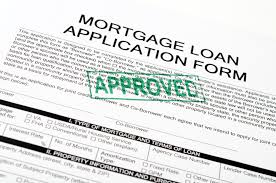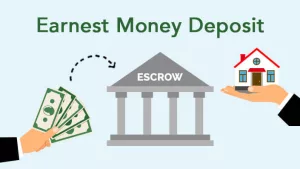Key Factors to Consider Before Taking a Real Estate Loan
Go Back To Previous PageThere are several factors to consider when deciding whether to take out a mortgage loan. However, the most important thing is to consider your purchase a long-term commitment and that you’ll live with this decision for quite some time. Some key factors must be considered before taking out a real estate loan.
purchase a long-term commitment and that you’ll live with this decision for quite some time. Some key factors must be considered before taking out a real estate loan.
- Determine how much money you can afford to borrow. It will depend on your income, debts, and other financial obligations.
- The best option is to find a lender that offers competitive interest rates and terms.
- To find the best-suited loan option, compare different options to determine which one best meets your needs.
- You must understand all the fees and costs associated with the loan.
Overall, research is essential. Researching and preparing ahead of time can make taking out a real estate or reno loan easier.
What about the down payment?
The size of your down payment will directly impact the amount you’ll need to finance your home. A significant down payment means a smaller loan, and a smaller loan amount means lower monthly payments.
The down payment is also critical in determining the interest rate you’ll pay on the loan. Meanwhile, lenders may offer lower interest rates to borrowers who can make a larger down payment.
Making a larger down payment can also help you avoid paying private mortgage insurance (PMI). PMI is required if you finance more than 80% of the purchase price of your home. In this case, it’ll protect the lender if you default on a loan.
How much interest are you going to pay?
Before taking out a real estate loan, you must consider how much interest you’re willing to pay every month. You can determine what type of loan is right for you and how much you can afford.
Can you afford a house mortgage?
Assuming you have a regular job with income taxes already deducted, your gross monthly income is what you bring home before any other deductions. To calculate your net income, take your gross monthly income and subtract social security, Medicare, and federal and state taxes. It will provide you with your monthly net income, which is the amount left after subtracting your monthly expenses.
deductions. To calculate your net income, take your gross monthly income and subtract social security, Medicare, and federal and state taxes. It will provide you with your monthly net income, which is the amount left after subtracting your monthly expenses.
If you need to determine how much house you can afford, online calculators can help. Once you know how much you can afford, it’s time to start looking for and finalizing a loan.
Extra costs to incur
Real estate taxes: You’ll likely have to pay real estate taxes on your new home, which will vary based on its value and the area’s tax rate.
Homeowners insurance: Lenders typically require borrowers to have homeowners insurance, which protects both the borrower and the lender if the home is damaged or destroyed.
Private mortgage insurance: If you put down less than 20% on your home, you may need to pay PMI. Here, the lender receives protection if you default on your loan.
HOA dues: If your new home is part of a homeowner’s association (HOA), you may need to pay dues. These dues contribute to the maintenance of common areas and amenities and can accumulate over time.
Ending thoughts
Before taking out a real estate loan, consider a few key factors. These include the type of property you want to purchase, your credit score, and the amount of the down payment. Work with a reputable lender who can offer you competitive interest rates and terms.


